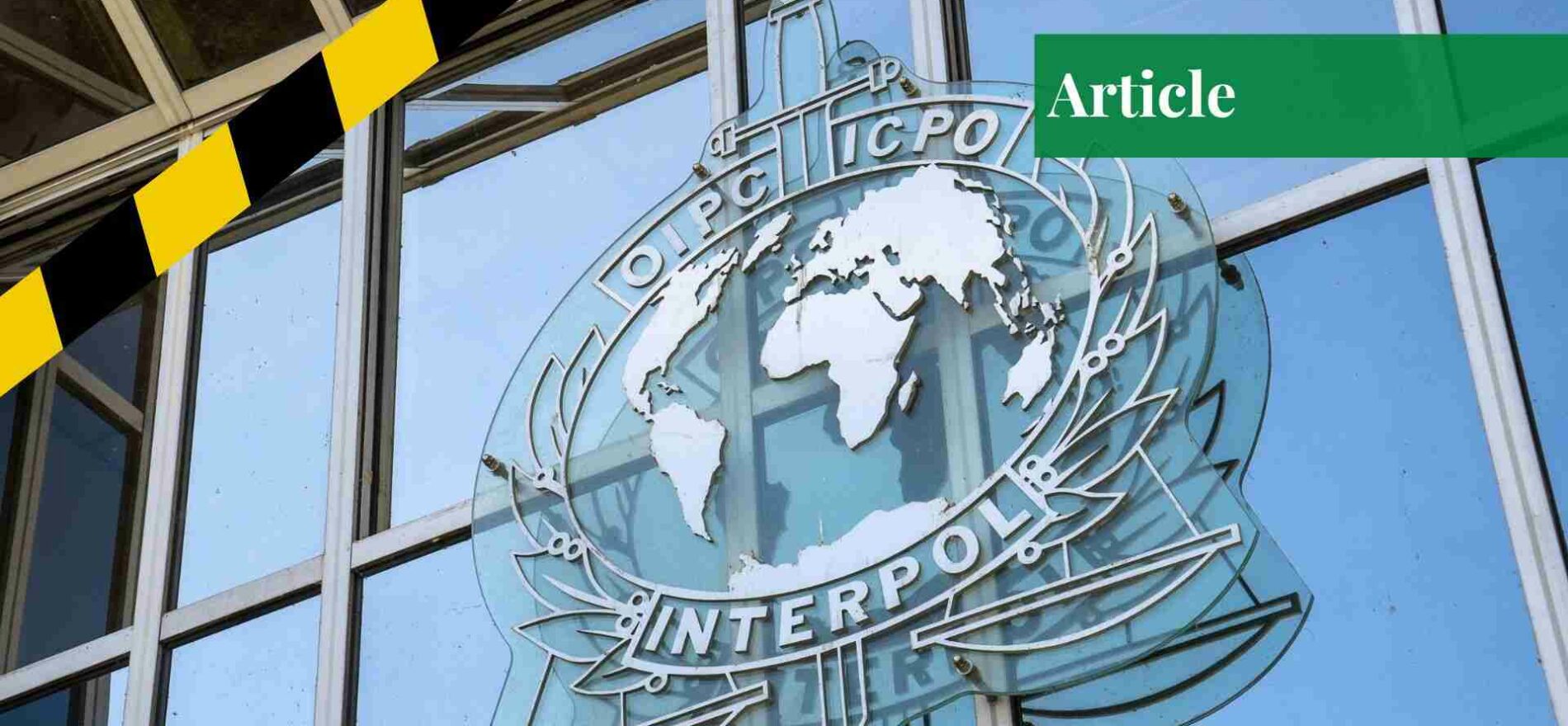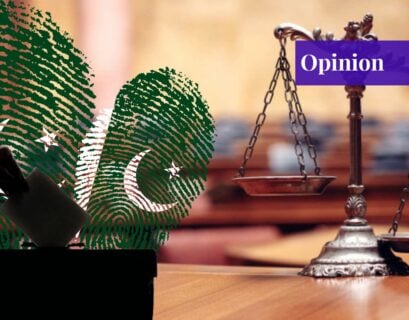Ms Tayyaba Atiq is pursuing a degree in International Relations from GIFT University, Gujranwala.
Introduction
The International Criminal Police Organization (INTERPOL) is an inter-governmental association established in 1923 with the role to tackle crimes taking place at global level by developing cooperation among countries. It acts as a bridge between law enforcement agencies of states across the globe in order to build a safe and crime-free world. It is neither a police organization nor has any police force; it is just a facilitator between police agencies of various states of world. It works on three makor areas: organized and emerging crimes, cyber-crime, and counter-terrorism.
INTERPOL also performs the role of an administrative force by collecting and analyzing data from countries across the globe. This data is later utilized and provided to the nations to facilitate them in coping the cyber-crimes, terrorism activities, and many other newly emerging offences. This data of organization involves fingerprints, DNA samples, pictures, list of most wanted persons and their travel history and documents.
The organization also has an Incident Rapid Response Force that immediately responds after an incident, and, on the request of involved state, also carries out investigation activities.
INTERPOL issues several notices depending on the intensity and the quality of crime and the history of offender. Criminals with most-wanted status receive red-notices indicating towards an immediate arrest; yellow notices are issued to locate missing persons; blue notices seek additional information; black notices are issue for unidentified dead bodies; purple notices for the modus operandi; green notices produce alerts over the possibility of a repeating crime; and orange notices are issued when there is a threat to public safety and societal peace. There is also the United Nations notice, a special kind of notice that is issued against those who are on the hit list of the United Nations Security Council.
Significance
While globalization in the twentieth century created opportunities for people to benefit by connecting different sectors, it also led to the rise in criminal dealings across the globe. These interactions and activities across the borders resulted in a rise in transactional crimes especially terrorism, extremism, drug trafficking and human trafficking etcetera. Later, digitalization added fuel to the fire by introducing plenty forms of cyber-crimes, scams, and online frauds.
The large-scale and broad horizon of these crimes have made it tough for states to counter these crimes. In the first six months of 2021, global ransom ware onslaughts had increased by 151%, with each firm subjected to 270 cyber-attacks on average.
Structure
The International Criminal Police Organization (INTERPOL) comprises 195 member states and one office called the National Central Bureau located in each member state. Its main headquarter is in Lyon, France. The organization consists of two major working bodies: the General Assembly and the Executive Committee.

The General Assembly is the highest decision-making body of INTERPOL that comprises 195 members, with each member state enjoying equal representation by having one vote. This body decides important affairs whose decisions are made by taking proposals in the form of a resolution and then having member states vote on it. If the resolution gets support from the two-third majority, it passes. The General Assembly also elects a president and Executive Committee members.
The Executive Committee consists of 13 members that includes one president, three vice-presidents, and nine delegates. The president is elected for a term of four years, while the vice president and delegates stay in office for three years.
Historical Background
In the 20th century, the rise in globalization and global interaction through travel and commerce facilities compelled criminal enterprises and fugitives to seek new opportunities to escape from their crimes. For this purpose, in 1914, an International Criminal Police Congress was hosted in Monaco to combat criminals and crimes. Almost 21 states participated in it and laid down the 12 principles involves crime identification, investigation techniques and international standard forensic data collection system and these rules later became the foundation of the organization.
Nevertheless, the emergence of World War I in 1914 delayed and pushed back the remarkable initiative. A similar attempt was made in 1922 that also proved to be a failure. In 1923, President Johannes Schober of Vienna police organization called for a joint effort by hosting second International Criminal Police Congress in Vienna with the presence of 22 states.
Till 1938, almost 58 states joined it alongside the United Kingdom and the United States. In 1938, the rise of Nazi Hitler and the French occupation of Austria resulted in the organization being under the control of the Nazi and his trained generals. After this, with the end of World War II, France, UK, Belgium and Scandinavia shifted the headquarters from Monaco to Saint-cloud in France and then in Lyon in 1989.
Contributions & Collusions
On 11th September 2012, a factory located in Baldia Town, Karachi exploded, causing the death of approximately 300 Pakistanis. This prompted anger among the people who then forced the government to conduct a proper investigation of the event as there was an allegation of the factory owners on not having followed precautionary measures..
Later, a joint investigation agency found that a political party known for threatening people to give bribes was involved and Rehman Bhola was identified as the major suspect. Before the release of the report, Rehman fled the state, leaving the Pakistan Federal Investigation Agency (FIA) to approach INTERPOL.
INTERPOL discovered Bhola in Thailand and informed the Bangkok Federal Investigation Agency, thereby facilitating talks between the law enforcement agencies of both states. This resulted in the successful extradition of Rehman to Pakistan where he was given a death sentence by Pakistan’s Supreme Court. This case presents the success and effectiveness of international criminal police organization in tackling crimes by providing assistance in capturing criminals.
A California-based Russian businessman Alexay Kharis shared in an interview with a leading newspaper highlighting the negative side of the organization. The case promulgates how several member states are politicizing the organization for their personal gains. He further told that it was a corruption case over a project that was carried out under his company and involved corruption from Russian high-officials. To hide their own corruption, the government personalities used Interpol as a tool against him. This proved that how states and governments exploit Interpol in order to cover their own criminal activities.
If you want to submit your articles, research papers, and book reviews, please check the Submissions page.
The views and opinions expressed in this article/paper are the author’s own and do not necessarily reflect the editorial position of Paradigm Shift.



















